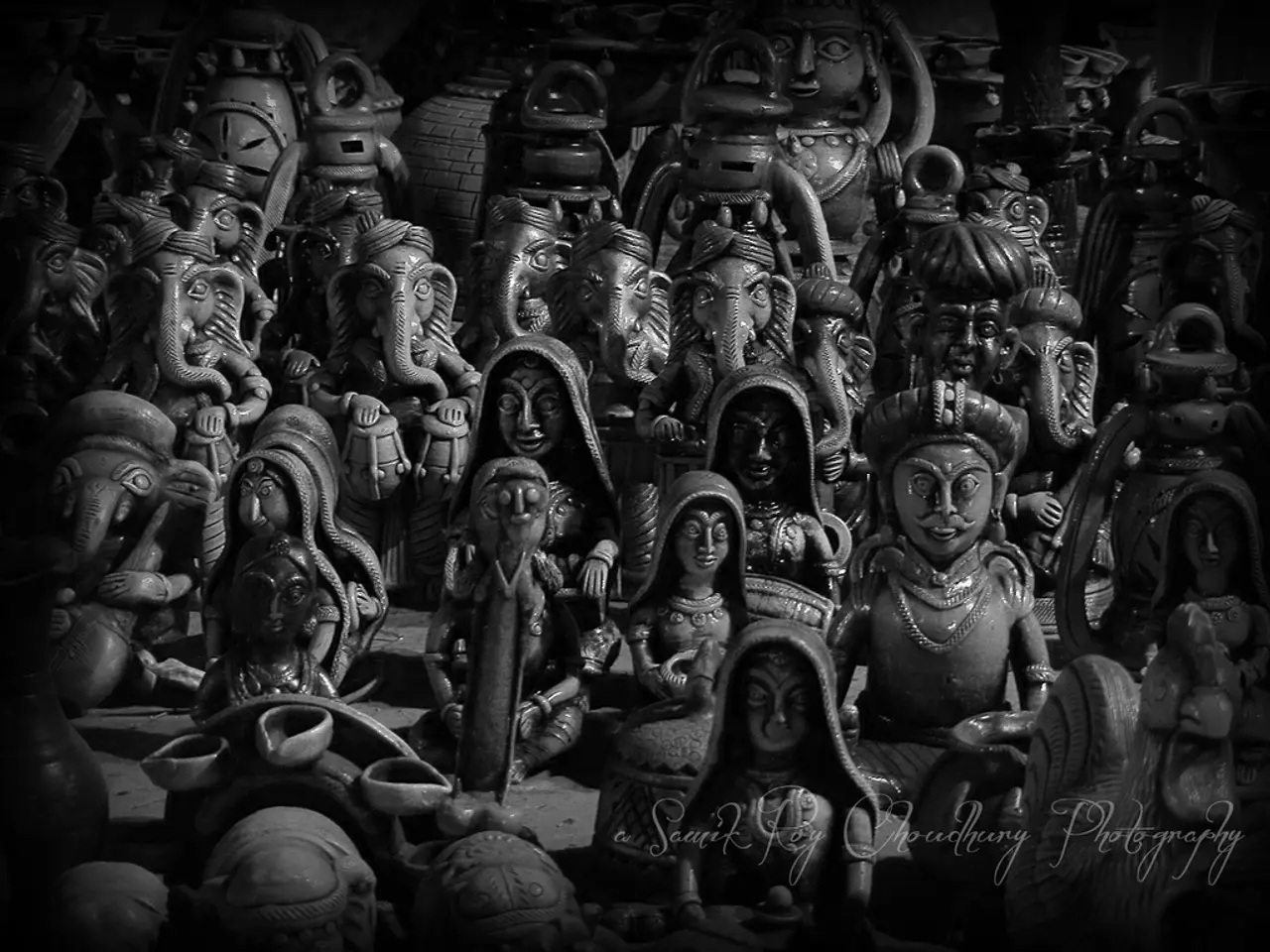Surprising election outcomes in India curtail Hindu nationalism, causing uncertainty among evangelical groups regarding the influence on religious minorities.
In a historic turn of events, the recent elections in India have brought about unexpected results, marking a significant shift in the political landscape of the world's largest democracy.
The Bharatiya Janata Party (BJP), which has been in power for the past several years, lost 50 seats in the Lok Sabha (Parliament), falling short of the absolute majority needed to form a new government. This decline was due to disillusionment among its core voters over issues like unemployment and threats to Indian secularism.
Narendra Modi, who has been in power for 15 years if he completes a third term, presented himself as a key figure for extremist nationalist and Hindu sectors during the campaign. However, his alliance of parties and his increasing control over the judicial institutions, economic elites, and media in the country in recent years did not help convince a large part of the population in the recent elections.
The Indian National Congress has won 50 more seats and leads the opposition, with a total of 234 MPs. This strengthening of the opposition offers a more competitive political scene in India, moving away from the dominance of a single party.
The declining representation of Hindu nationalism in Indian politics could make it more difficult for the government to target religious minorities and human rights activists. This is a relief for many, particularly for religious minorities who have felt marginalized under the Modi administration. For Christians, the loss of the BJP brings a sense of relief and cautious optimism.
The Rashtriya Swayamsevak Sangh, a Hindu nationalist group, has a massive reach in India and many affiliated groups across the country. However, the secretary general of the Evangelical Fellowship of India (EFI) claims that there has been an increase in the persecution of Christians, with over 600 incidents in 2023. The EFI expects a possible decrease in hate crimes committed by non-state actors due to societal polarization around religious issues.
The BJP, along with its allies, forms the National Democratic Alliance (NDA) coalition and has a total of 293 seats in the parliament, enabling them to continue in government for another five years. If Modi completes a third term, he would be the second prime minister to achieve a third term, following Jawaharlal Nehru, the country's first political leader after independence from the United Kingdom.
The "lok" (people) have triumphed over the "tantra" (system) for once, according to one political commentator. The average Indian is happy that the nation has turned from authoritarianism to a hopefully more inclusive form of government. The "other parties" group in the Lok Sabha got only 16 seats, compared to 64 in 2019, indicating less fragmentation.
India was one of the countries most devastated by the Covid-19 pandemic. The recent elections in India are a historic shift with unexpected results, according to Vijayesh Lal, general secretary of the Evangelical Fellowship of India (EFI). The secretary general of the EFI also expects a decline in hate crimes committed by non-state actors due to societal polarization around religious issues. The strengthening of the opposition offers a more competitive political scene in India, potentially leading to a more balanced and inclusive government.
Read also:
- United States tariffs pose a threat to India, necessitating the recruitment of adept negotiators or strategists, similar to those who had influenced Trump's decisions.
- Weekly happenings in the German Federal Parliament (Bundestag)
- Southwest region's most popular posts, accompanied by an inquiry:
- Discussion between Putin and Trump in Alaska could potentially overshadow Ukraine's concerns








